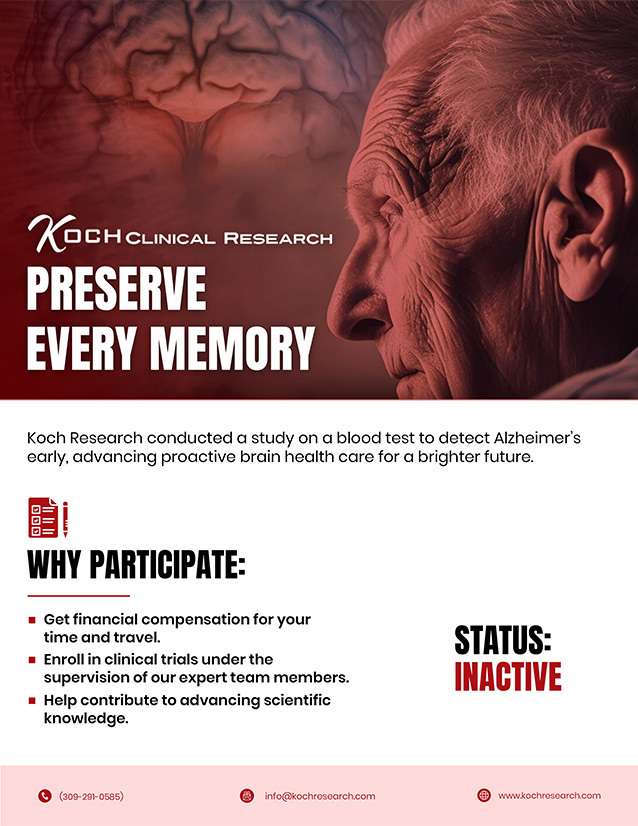Koch Research explored blood tests to identify Alzheimer’s in its early stages,
paving the way for improved brain health.
Blood Test for Alzheimer's in Central Illinois
Koch Research conducted a study to evaluate the efficacy of a novel blood test designed to detect Alzheimer’s biomarkers. Participants completed a quick cognitive exercise followed by a blood draw, contributing to advancements in early detection efforts and improving long-term brain health.
Current Status
Total Studies
Enrollment Process
Clinical trials are essential for advancing medical knowledge and improving patient care by testing the efficacy and safety of potential treatments before they are widely available to the public. Here’s what you can expect when considering enrollment.

Recruitment
Recruiting volunteers is the first step of an active clinical trial.

Phone Screening
You will undergo a phone screening to determine your eligibility.

Informed Consent
You must sign an ICF defining the purpose, procedure, potential risks & benefits, and your rights as participants.







